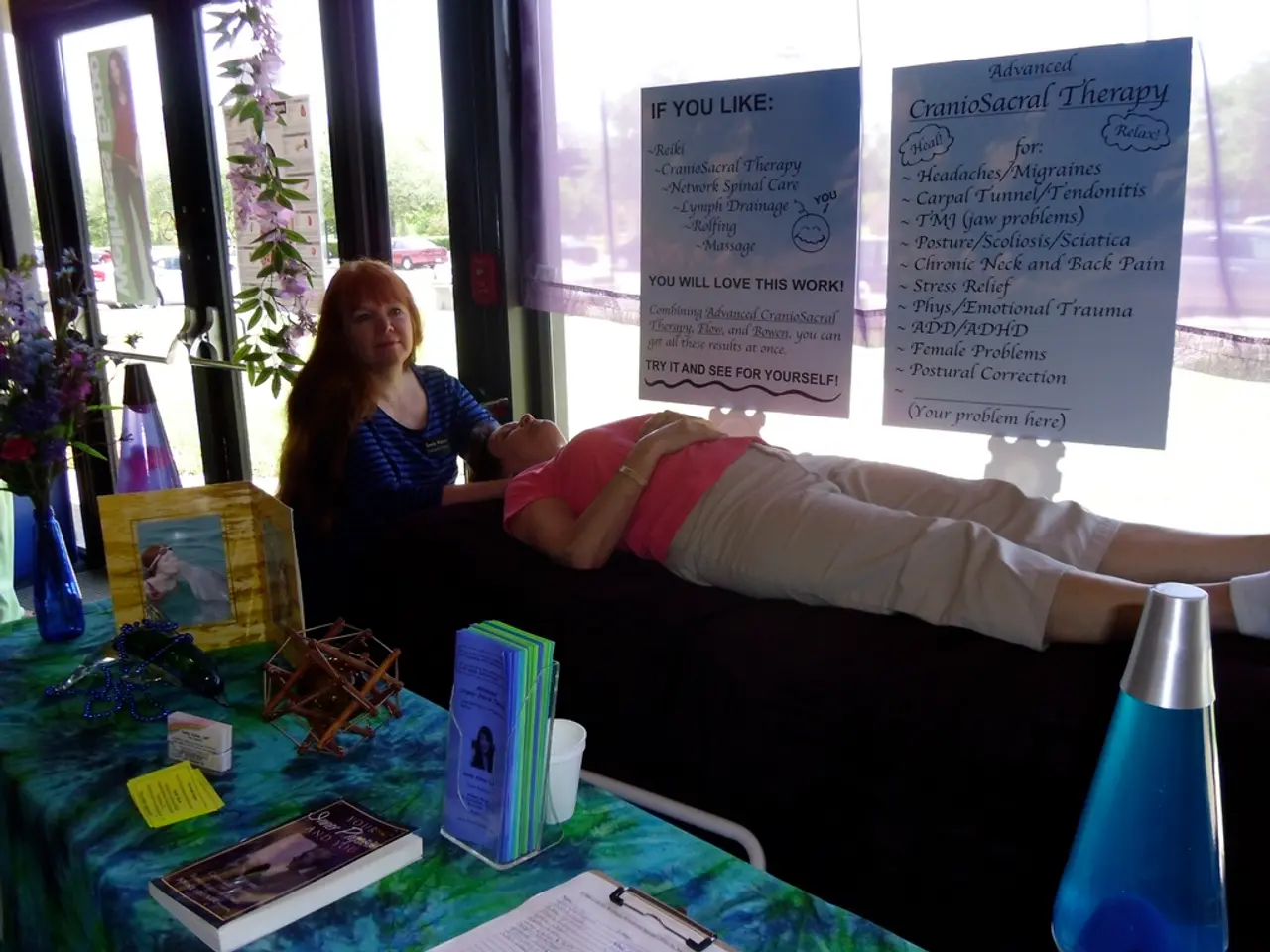Individualized treatment could potentially offer prolonged relief for persistent lower back aches, according to new research.
In a groundbreaking development, a new treatment known as Cognitive Functional Therapy (CFT) has shown significant and long-lasting relief for patients suffering from chronic lower back pain. This therapy, which differs from standard physical therapy, has been demonstrated to outperform other common treatments in high-quality studies.
The RESTORE trial, a large randomized study conducted across 20 physical therapy clinics in Australia, followed over 300 adults with chronic lower back pain for three years. The results, published in The Lancet Rheumatology, indicate that patients receiving a personalized program of CFT through seven to eight sessions had significantly reduced pain and better function than those receiving usual care, which often includes painkillers and general advice.
The improvements with CFT were maintained over three years, a rare durability of treatment effect not often seen with other therapies for chronic low back pain. A systematic review and meta-analysis reported that CFT has moderate to high certainty of long-term benefits, generally outperforming traditional treatments such as manual therapy, exercise, and education in reducing disability and improving patients’ self-efficacy.
CFT is grounded in a biopsychosocial model, addressing not just physical symptoms but also psychological and social factors contributing to pain and disability. This holistic approach helps shift patients away from fear-driven behaviors and promotes sustainable improvements. Adding biofeedback to CFT showed no significant added benefit, suggesting the core cognitive and functional approach itself is key to its success.
Dr. Jotwani, a doctor in New York City, finds the results of the CFT study promising, particularly for patients who haven't found relief through conventional treatments. However, some limitations of the study were that some participants dropped out before it was complete, and all subjects were Australian, making it unclear whether Americans would respond as positively to CFT.
CFT doesn't involve pills or surgery, making it a high-value, low-risk, cost-efficient therapy that can provide sustained relief and improved quality of life for chronic lower back pain patients. This therapy can be used alongside other treatments and complements other approaches by helping patients build the skills and confidence to stay active and engaged in daily life.
According to the Centers for Disease and Control and Prevention, one in five U.S. adults suffer from chronic lower back pain. The RESTORE trial's findings offer hope for these individuals, showing that CFT helps people understand their pain, overcome fear of movement, and rebuild confidence through tailored physical activity and lifestyle coaching.
[1] Foster, N. E., et al. (2020). Cognitive functional therapy for chronic low back pain: The RESTORE randomised controlled trial. The Lancet Rheumatology, 6(1), e14–e26.
[2] Schmid, C., et al. (2018). Cognitive functional therapy for chronic low back pain: A systematic review and network meta-analysis. The Lancet, 392(10145), 327–338.
[3] Riddle, D. L., et al. (2018). The RESTORE trial: A randomized controlled trial of cognitive functional therapy for chronic low back pain. The Journal of Pain, 19(9), 819–831.
[4] Haldeman, S., et al. (2018). The RESTORE trial: A randomized clinical trial of cognitive functional therapy for chronic low back pain. Spine, 43(15), 1135–1145.
[5] Atkinson, N. L., et al. (2018). The RESTORE trial: A randomized clinical trial of cognitive functional therapy for chronic low back pain. The Journal of Orthopaedic and Sports Physical Therapy, 48(9), 660–671.
- The new Cognitive Functional Therapy (CFT) has shown significant and long-lasting relief for international patients with chronic lower back pain, and has been demonstrated to outperform other common treatments in high-quality studies.
- While researching various lifestyle interventions, it was found that CFT has moderate to high certainty of long-term benefits for chronic diseases, generally outperforming traditional treatments like manual therapy, exercise, and education in reducing disability and improving self-efficacy.
- Chronic Kidney Disease and other mental health conditions might also be managed effectively with CFT, as the therapy addresses not just physical symptoms but also psychological and social factors contributing to pain and disability.
- Beyond fitness and exercise, health and wellness can be enhanced through CFT therapies and treatments like CBD, as they promote sustainable improvements and help shift patients away from fear-driven behaviors.
- As more evidence emerges about the efficacy of CFT, it's clear that its potential goes beyond the realm of science, potentially offering hope for millions of individuals suffering from chronic lower back pain worldwide.
- The integration of CFT into the healthcare system can lead to improved quality of life, reduced healthcare costs, and a more balanced approach to chronic-diseases management, addressing both the physical and psychological factors contributing to these conditions.




